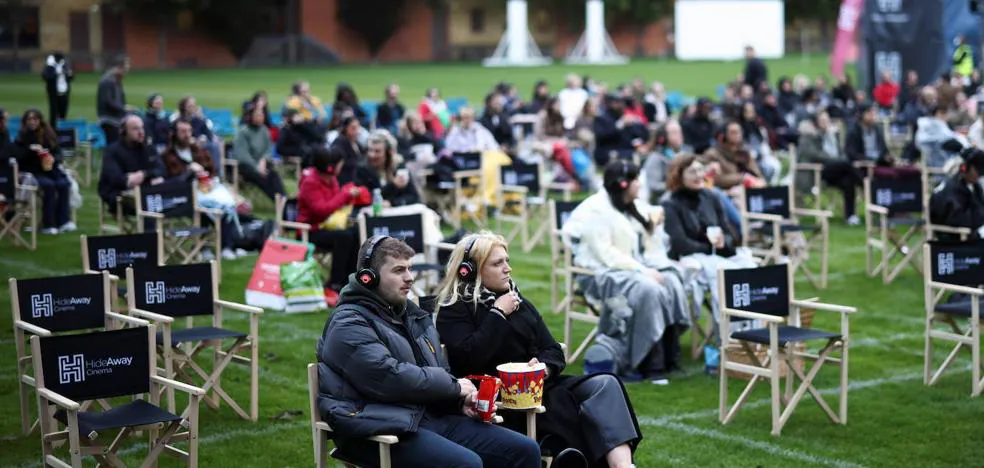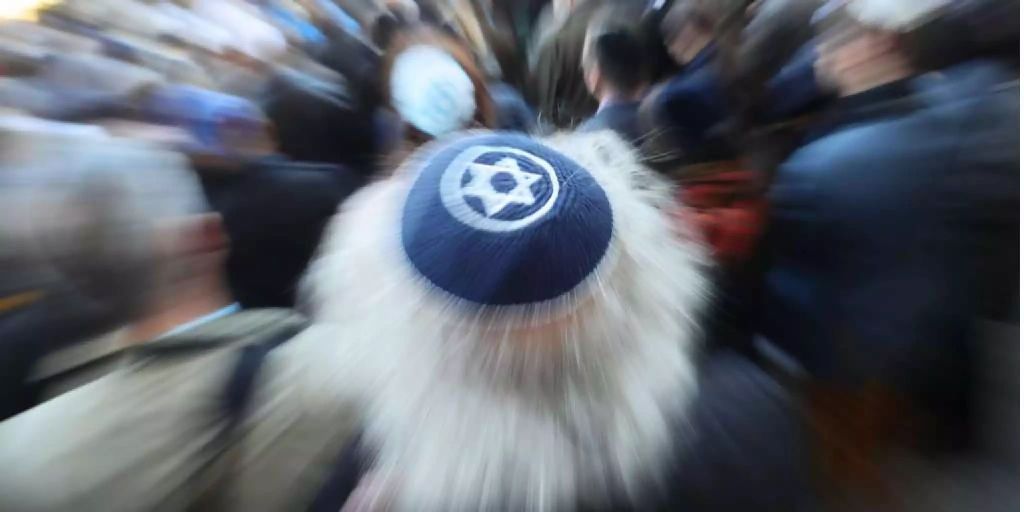Wednesday was the big day. The Sabor restaurant, run by Biscayan chef Nieves Barragán Mohacho, reopened to the public after more than five months of hiatus. ‘The reserves are exhausted. We fill with the regulars. People want to come back, and that is very nice, ”she enthuses. «The human being needs the hospitality industry. It is the space and the moment when you get together with your friends, you vent and clear yourself. People want to go back to normal, to laugh, to have fun, “he adds.
Sabor hides in an alley off Regent Street. It is Barragán’s “London dream”, “a trip through Spain, from south to north, passing through Segovia and other Castilian foci” tasting fried fish, piquillo croquettes, octopus or suckling pig. It earned a Michelin star in its debut in 2018. “I have opened six restaurants in London, but reopening after five and a half months of quarantine is like starting at minus ten,” he explains.
It was necessary to check every plate and tray, disinfect surfaces, and readjust tables, chairs, and stools to social distance. The original business plan also had to be modified in the face of the explosive combination of ‘Brexit’ and the coronavirus. “I lost 70% of the staff among those who returned to their countries due to migration issues and those who decided to spend the pandemic with their families. Everyone is very cautious, “he says. And she recommends: “It is important that diners feel safe, that they see us disinfecting the surfaces, washing our hands and cleaning the railings.”
Precisely, distrust in compliance with hygiene protocols prevents academic Jennifer Smith from taking advantage of the relaxation of restrictions. And that since Monday it is allowed to visit museums, go to the theater, put hours in the gym and share a table with up to six people in a closed space. “At the university, the hygiene system is very strict and, when I am in the office, the cleaning staff comes in every half hour and disinfects everything, from handles to the photocopier. In the library they do not allow to approach the shelves and they leave the books in quarantine ».
“I go confidently to campus, although I was initially scared and many weeks of shock. But you do not know if in stores or bars they execute the protocols well and many people do not even wear the mask in closed spaces. For now, I prefer to be outdoors, · says the teacher.
Adam Wright, designer of ‘animatronics’, also opts for terraces or gardens. «The bad thing is the weather, it doesn’t stop raining and it’s cold. A friend just canceled her birthday party in the park. I have not yet had a beer in a pub. You have to plan it in advance, agree with a colleague who does not feel uncomfortable in a closed space, and my friends prefer to be out in the open, “he says.
“We cannot risk everything”
All the interviewees have been vaccinated with at least one dose and, although the fear of getting sick has been mitigated, some feel anxiety when leaving their social bubbles. “The Indian strain, with the new sprouts, reminds us that we still have to be cautious, that we cannot risk everything,” Wright emphasizes. The film industry has woken up strongly this spring. “A lot of movies are being made for streaming services. There are many job offers. Producers may be concerned that if they do not finish on time they could be caught in another quarantine in winter, “he explains of a sector that relies mainly on self-employed professionals.
Infections from the Indian strain have grown 160% this week (3,424 cases), although Prime Minister Boris Johnson still hopes to lift all restrictions on June 21. Kathryn Bell, director of Gallery 2020, is alarmed at this possibility. None of the restrictions make sense. They have arbitrarily decided what should close and what can remain open. The de-refinement has to progress as quickly as possible, ”says the British and Japanese art advisor at Fine Arts Consultancy.
At the entrance of his gallery, in the rich and bohemian neighborhood of Belsize, he has placed a plastic container inviting the neighborhood to donate products for the local food bank. “Just a short distance from here, between Cha lk Farm and Camden Town, the outlook is devastating. Shops, bars, restaurants that never reopened. Those who go to food banks are not concerned about the virus, but how they will feed their family, “she denounces, although she is sure that many adults will take time to leave their bubble and return to urban life.
The northeast of England and some London neighborhoods are the areas most affected by the Indian variant, which is considered more contagious than the previous ones. The concern not only spreads within the country, but also abroad. Germany’s Robert Koch Institute on Friday classified the UK as a ‘virus variant zone’, automatically forcing travelers from British soil to self-quarantine for two weeks. The order is applied from today in the transport terminals and German borders. The institute understands that “this movement is difficult for the United Kingdom, but it is necessary to avoid the rapid spread of the Indian variant” through German territory.
Changing habits
Around 70% of the British adult population have received the first dose of the vaccine and more than 21 million had completed the program by the middle of this week. Those over 30 years of age are already beginning to receive appointments to go to the inoculation centers and it seems certain that the vast majority of adults will be immunized well before the initial goal, set at the end of July.
Nightclubs and big shows are waiting for the green light to reopen the doors. The adoption of a vaccination passport or a viral immunity certificate, which the Government continues to study, could facilitate the reactivation of these mass numbers. Johnson’s “irreversible” plan includes eliminating distances in human contact or the use of masks in closed spaces.
In one way or another, a substantial part of the population considers that the pandemic has brought changes that will be permanent. Professor Jennifer Smith intuits that online classes in Humanities subjects will continue in the fall, even if the coronavirus is under control, while Kathryn Bell predicts that “it will be difficult for people to get out of their comfort zone.” The Santurtzi restorer is preparing a new version of its ‘Taste at home’ offer and the effects technician thinks that geographical dispersion will prevail and the stigma of moving out of London or other cities for fear of losing the opportunity to work will “disappear .
– .


